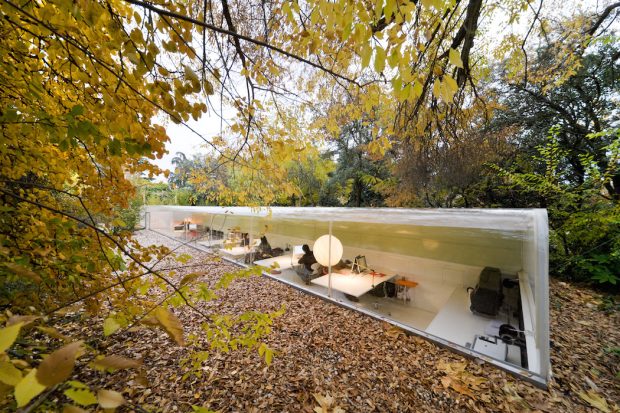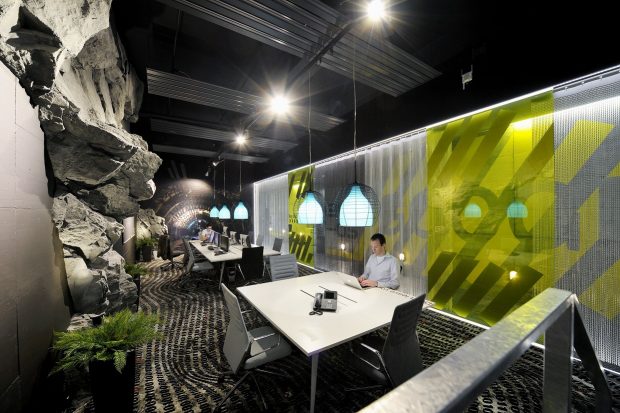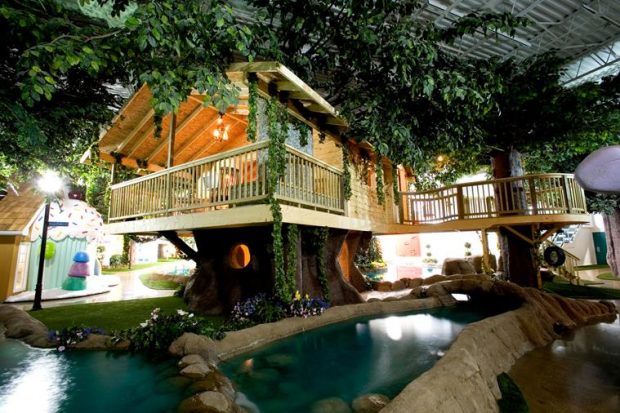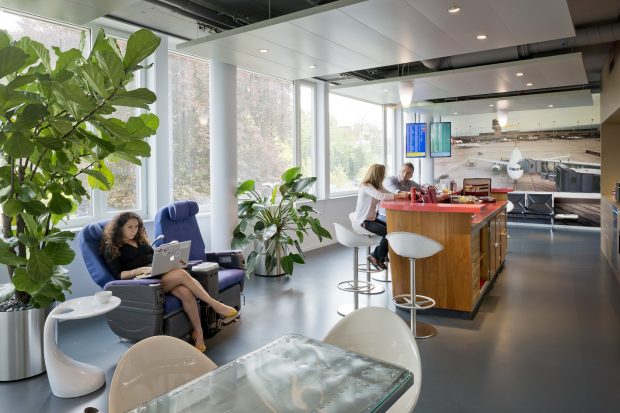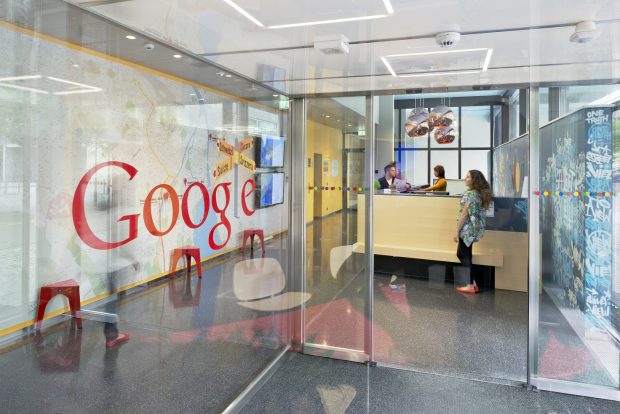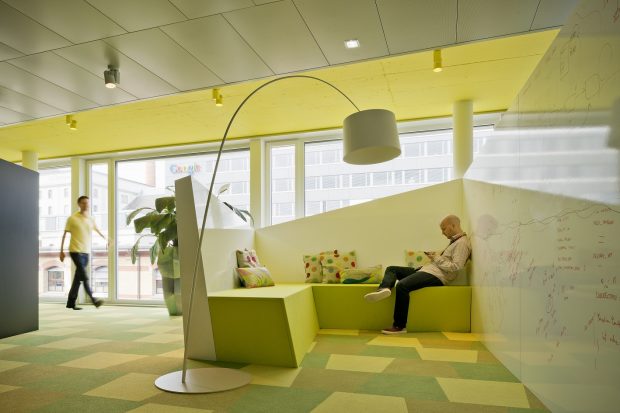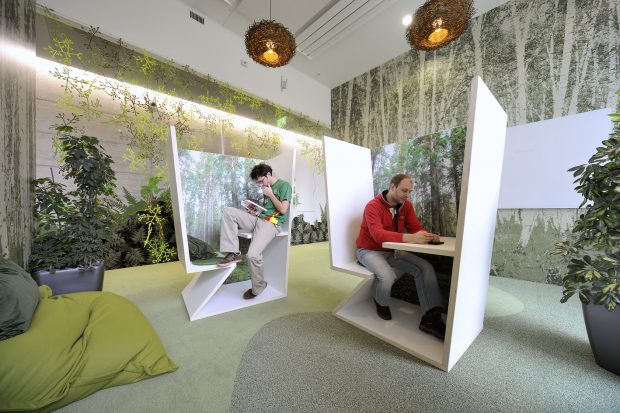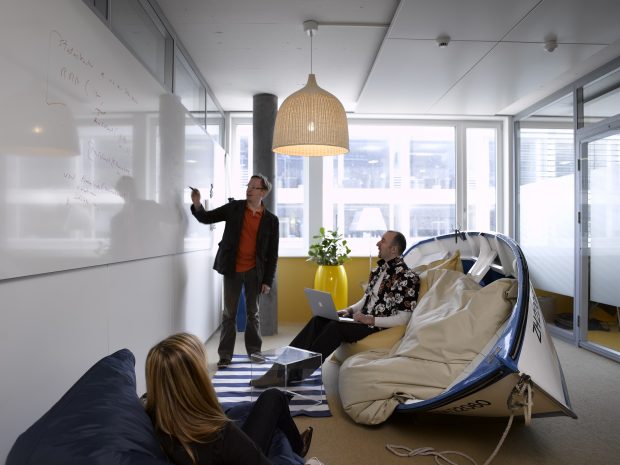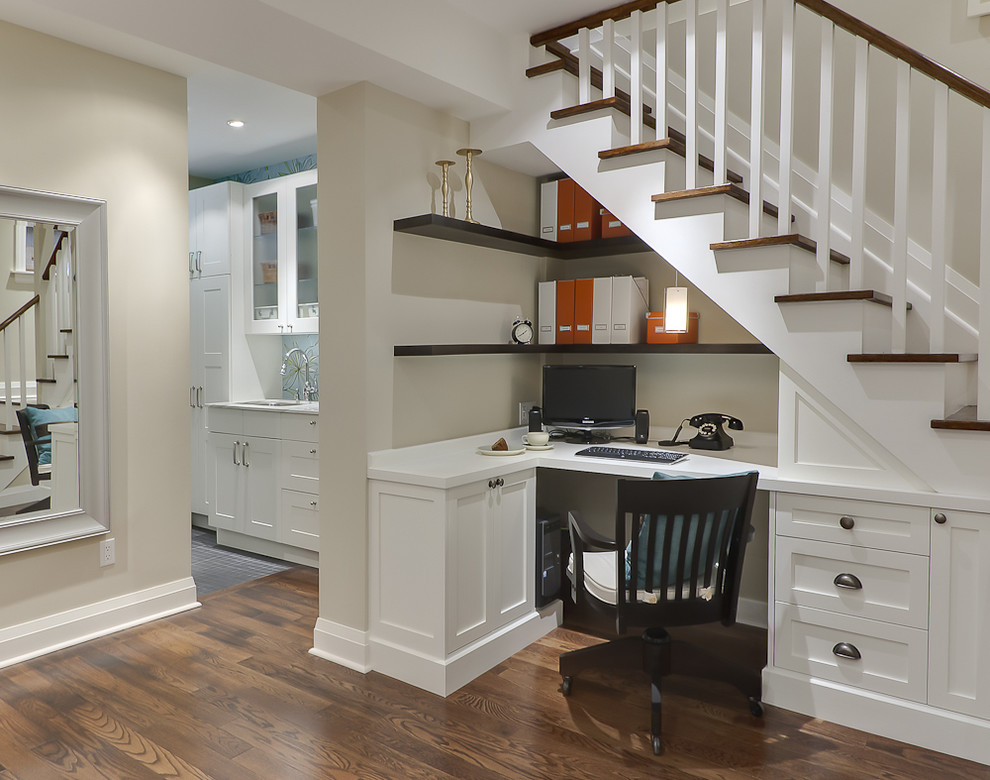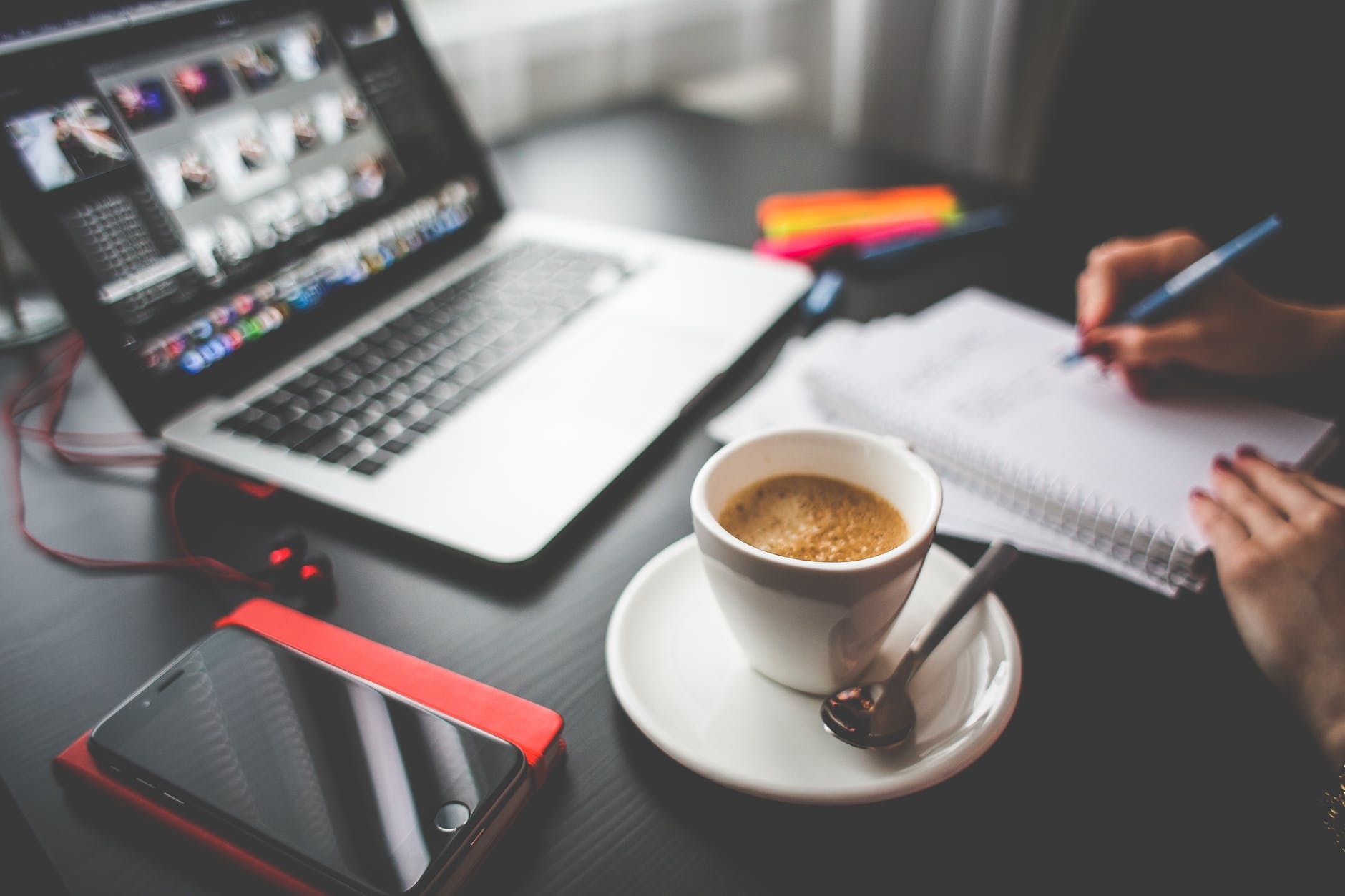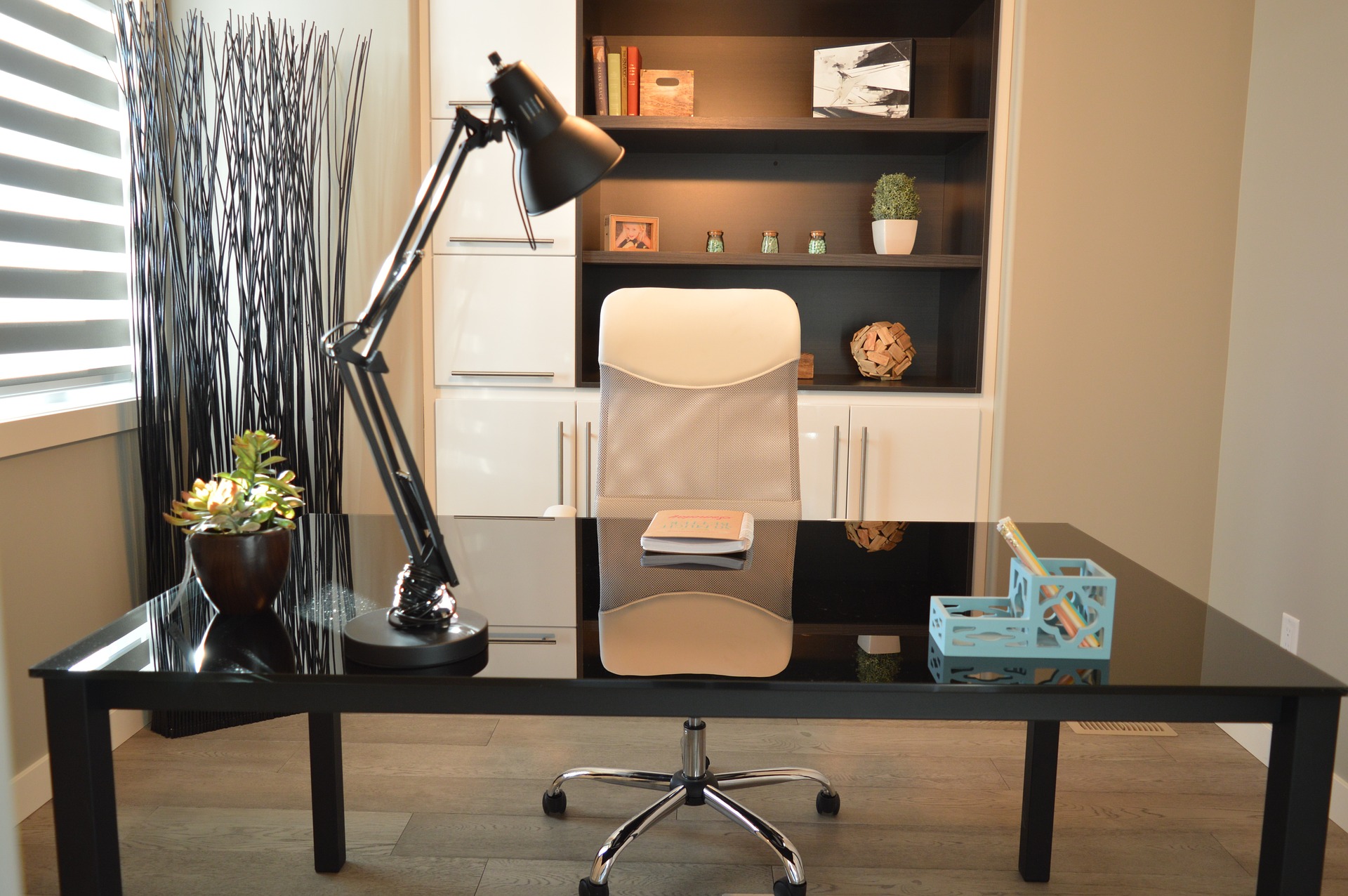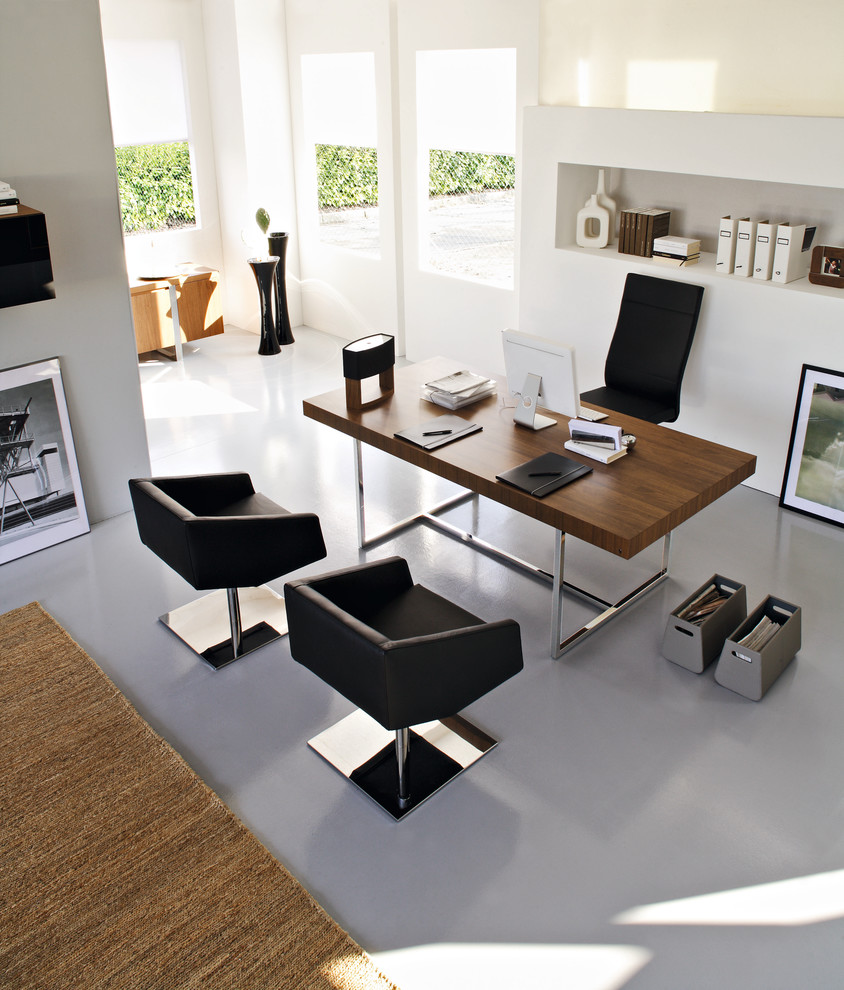The new workplace reality is more about being out of office than being inside. Going to office doesn’t really mean travelling to a different location on the map. FlexJobs, a site for people seeking part-time or freelance jobs, reports a 36% jump in the remote job postings in 2016 from the previous year. However, even with this trend the need of creative office space has not lost its charm.
Workspaces are constantly changing. Creative and unique office spaces are attracting more attention than old fashioned and mundane cubicles. Be it fast growing startups or well-established companies workplace design is the new mantra of workplace differentiation.
Some of The Most Creative Workplace Designs
To get your creative thoughts rolling, here are some of the existing examples of most creative workspaces around the world:
Selgas Cano Architecture Madrid, Spain
Image by © Iwan Baan
Google office Zurich, Switzerland
Image by © Google.ch
Inventionland Design Factory
Image by © Inventionland.com
Many other well known names also form a part of this list. For example, Facebook, AirBNB, DropBox, etc. All these firms are famous for their creative workspaces and attracting great talents across the board to work for them.
Objective of Creative Interior Design
Innovative office design may be important to attract the best talent and give them the environment that will make them shine. There is this problem of clutter that could be a hurdle on the way.
Image by © Google.ch
When you want to promote innovation and creativity, you want people to be able to run their minds well. For the mind to run well, the setting needs to have a natural flair and uncluttered space. However, many of the offices mentioned above are not as uncluttered as you’d expect. Look closely, and you find the workstations are in fact quite clean.
Where to Start
The thought of the design starts with the type of business activity and objective of the office. Whether you are a new age tech solution business or a traditional furniture store, interior design for your office gets inspired by your business objectives.
For instance, if you are planning to establish your software solution or an e-commerce office, the design may include sharp edge corners, innovative use of limited space etc. But try to open a furniture store, and the ballgame is entirely different.
Image by © Google.ch
The location could be an influencing factor too. However, not as much as the business objectives. Consider a furniture store for example. It makes more business sense to open the store in a busy marketplace or a mall, than on a large piece of land.
While you can place a technology startup or an e-commerce venture anywhere, including the middle of a forest, a retail storefront must be placed strategically to catch more eyes naturally. Provided there is proper electricity supply and internet connectivity. Also, urban startups quite often face space crunch as they grow, and the only option left is to fit more into less.
Image by © Google.ch
The Furniture Store vs Office with Furniture
The furniture store needs to display the furniture in the best possible scene for office or home to sell better. Additionally, you may also want to display the furniture online along with the physical store. Thus, the store lighting and design must evolve around the kind of furniture you are selling.
Image by © Google.ch
Come to the tech innovation office space, and you immediately find the furniture, lighting, windows, and entire space revolving around the brand concept and perhaps the people and technology as well. The whole concept is to highlight the fun and innovation quotient of the technology while countering the boring and mundane side of it.
Ecommerce Ventures & Office Design
If you are running an e-commerce venture, expanding to a physical store is the next step for you. Keeping the feel of online store flowing through your three-dimensional setup could be the thing to do. Similarly, if you’ve been running a popular brick and mortar store, perhaps it’s time to expand online.
Image by © Google.ch
Whether you expand backwards or forward, your office or store design should only improve your brand recall.

